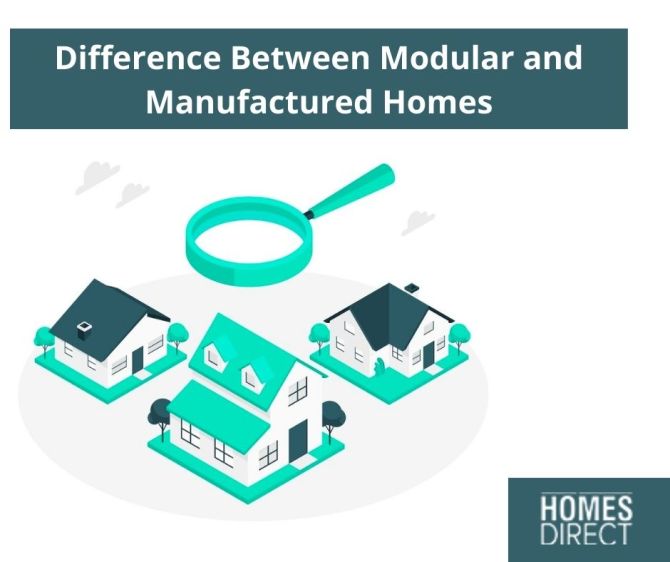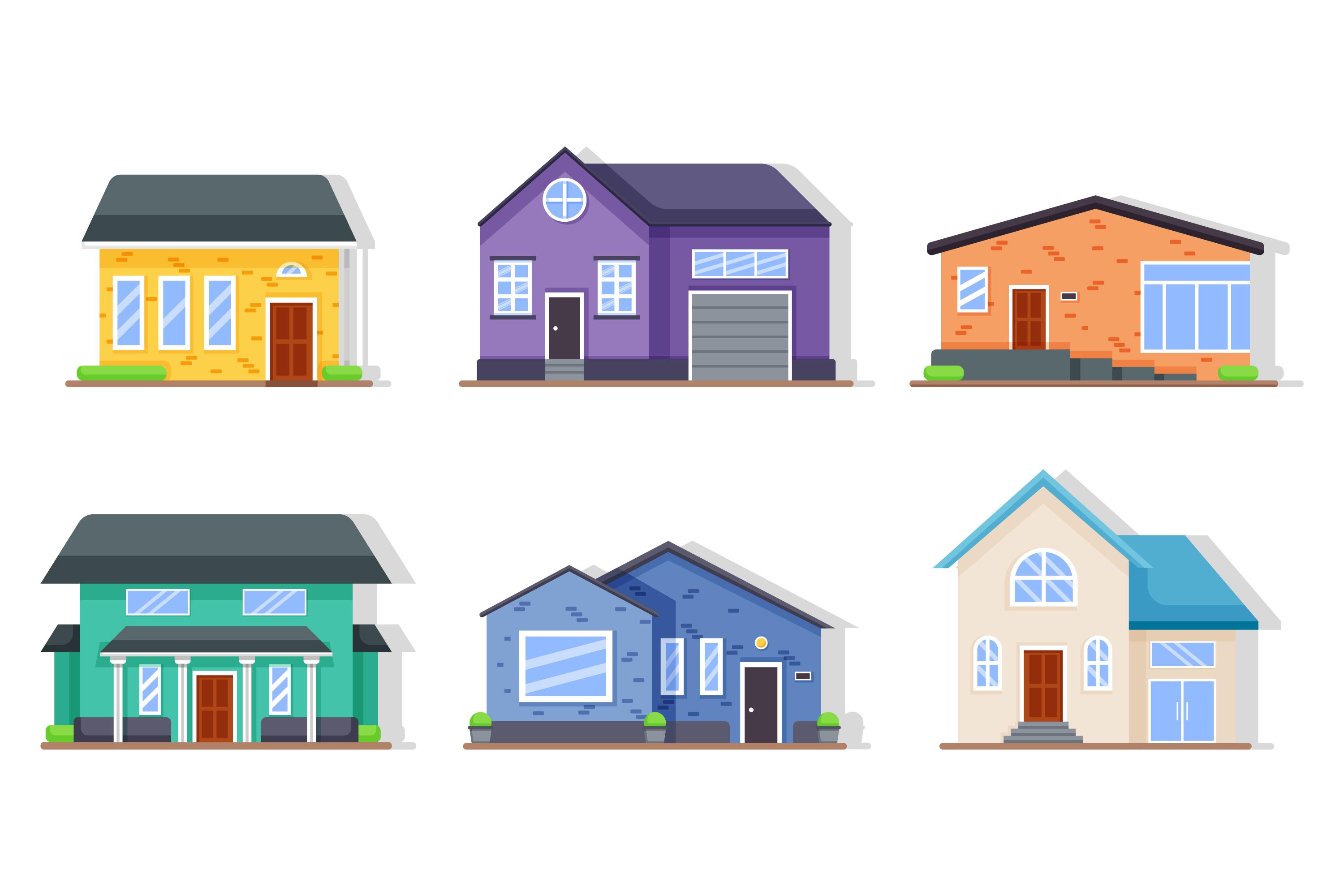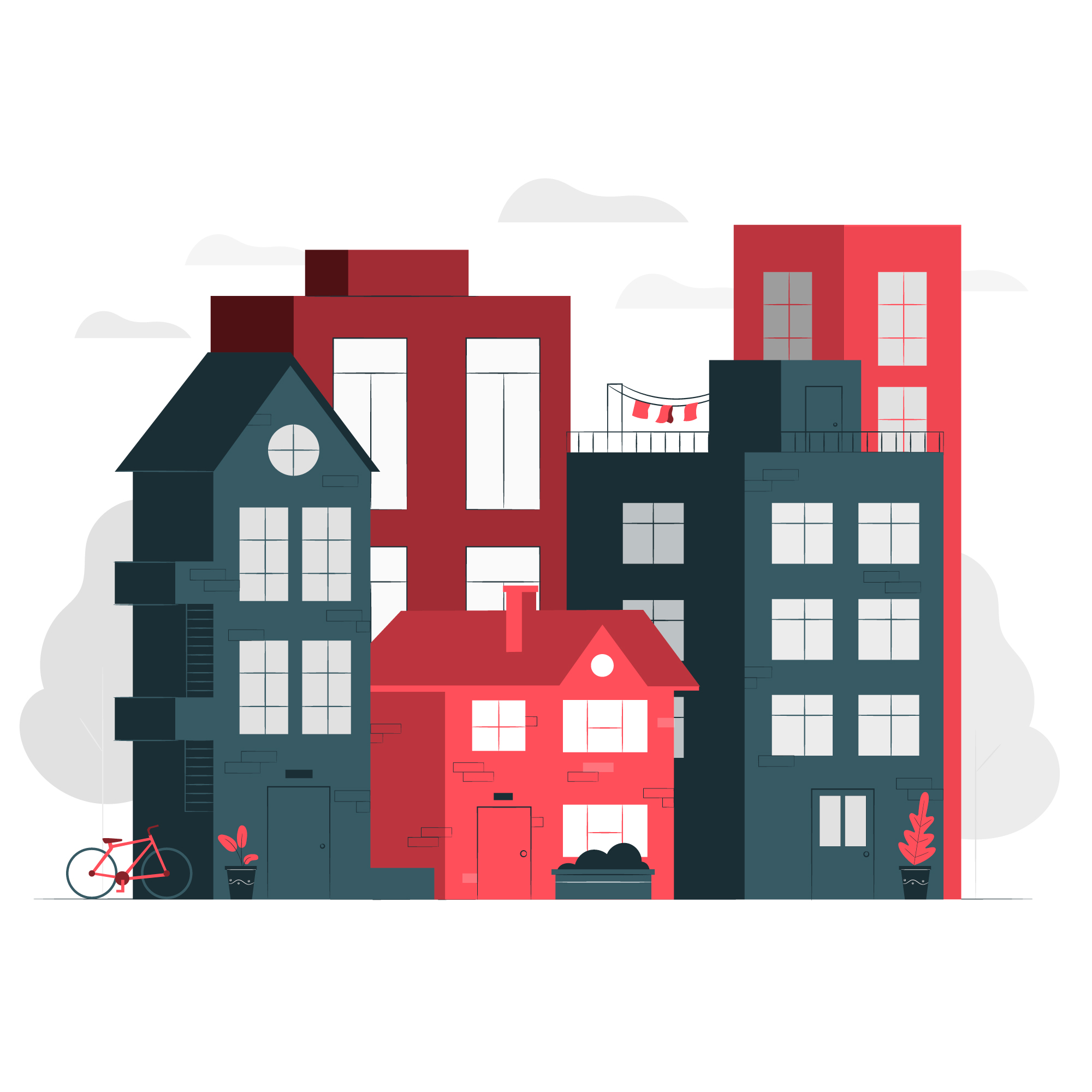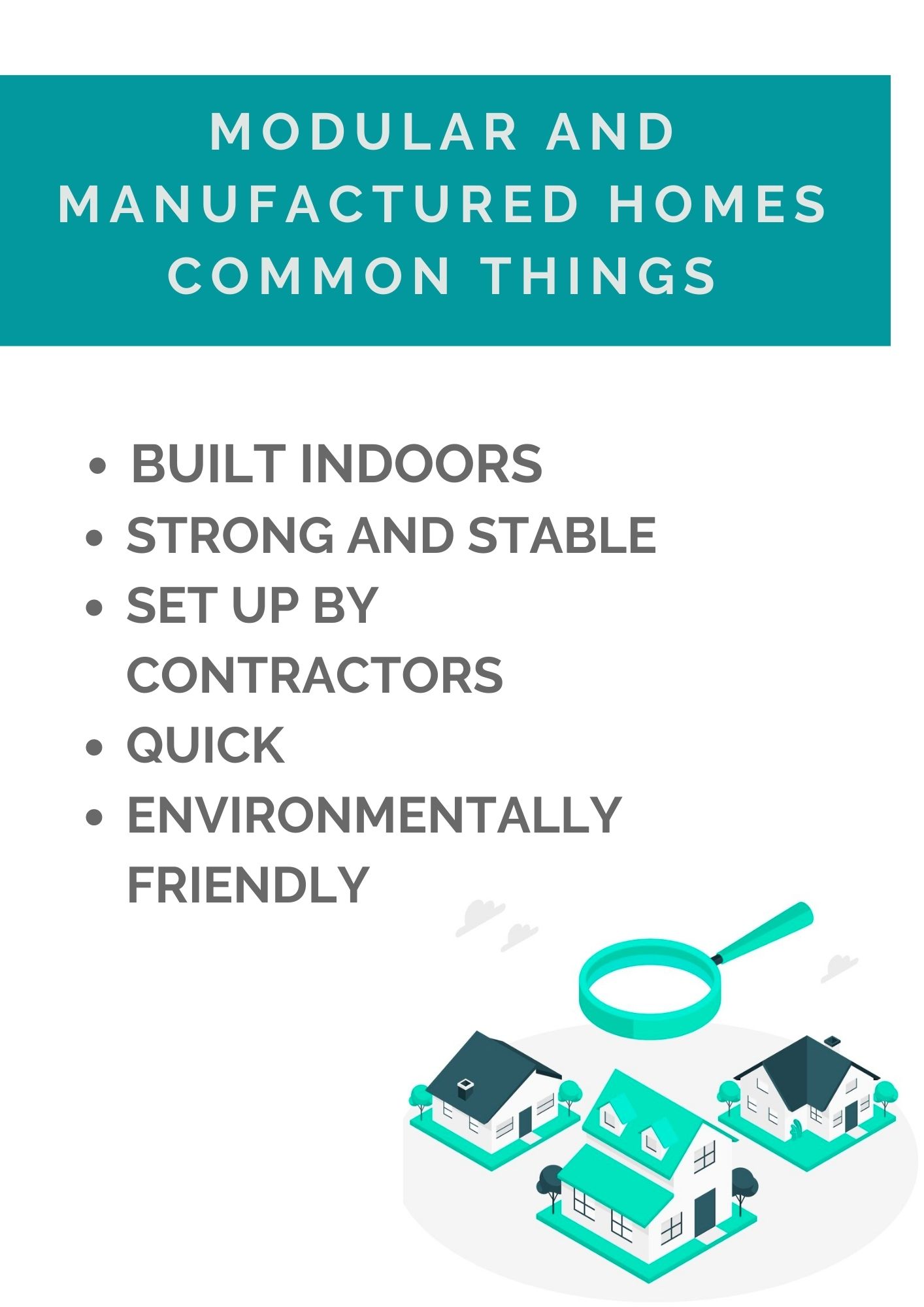
Manufactured homes have become a beloved option for newlyweds or families that can’t afford to buy site-built houses. What is the difference between manufactured and modular homes or even mobile homes? There are many terms used for different types but overall they are not so different. One of the main differences is that modular homes are assembled on-site with the components fully built in the factory while manufactured homes are fully built in the factory and shipped to the location! Let’s get to exploring and learn about the difference between modular and manufactured homes.
| Modular home | Manufactured homes |
|---|---|
| Built-in controlled conditions and transported to the construction site where it is fully assembled. |
Fully built-in factory-controlled conditions and are transported to the location. No further assembling. |
|
Modular homes are built to all applicable state and local building codes. |
Are constructed by the regulations of the national HUD code. |
|
Highly customizable |
More affordable than site-built homes |
|
Minimum of a 5/12 roof pitch. Good financing options |
Typically have a lower roof pitch (3/12 Good financing options |
There are even park homes, but let’s discuss the main difference between manufactured and modular homes first! Both modular and manufactured homes are a great choice if you like customization, fast, and cost-effective housing options! They can be customized and there are many floor plans and ideas one can choose from!

What Are Modular Homes
Modular homes have skyrocketed in popularity over the last few decades. But despite its popularity, many people aren't quite sure what modular homes even are.
A modular home is a home that has been built indoors – basically, inside a home-building factory. Once complete, the modules or components are transported by truck to their new location and assembled by highly qualified tradesmen onto the foundation.
Modular homes can be placed end-to-end, side-by-side, or stacked. This allows modular homes to be highly customizable. Here you can find customization options.
Unlike manufactured homes which are built according to the HUD code, modular homes are built according to the same or higher building standards than site-built homes.
They are supposed to conform to all state, local, and/or regional codes that are needed for the final location.
Modular homes are also considered a form of green building and build way faster than site-built homes with lower waste of materials. They can be built to withstand 175-mph winds and they are energy efficient.
Modular homes are very fastly built, even in a couple of days or less depending upon the size and the style! This makes modular homes a pretty good choice for people who are rushing to move to their new homes!
Features and facts about Modular Homes:
- Homes, materials, and craftsmen are protected from the weather during construction.
- Indoor home construction is well suited to our climate.
- Materials are used efficiently in a secure environment.
- The workforce is stable, skilled, well-supervised, and efficient.
- The indoor building process allows for special construction techniques.
- Extensive use of automated tools and equipment.
- Independent internal and external quality assurance programs.
- Unique transport methods mean homes are built with extra strength for transport.
- Costs are controlled because of our ability to manage the entire building process.
- Home loans and property taxes work the same way for modular homes as they do for traditional homes.
- Modular homes can be fully customized; they vary from one another in appearance, size, and design.
- You can still have a basement or crawl spaces with a modular home!
Want to have your dream modular home with the highest quality and construction methods. Choose your manufacturer.
- Champion Arizona
- Golden West (Oregon)
- Champion California
- Karsten (New Mexico)
- Durango Homes
- Golden West (California)
- Palm Harbor

What Are Manufactured Homes
A manufactured home is a home that is totally constructed and put together in an assembly line or a factory.
Manufactured homes and mobile homes are regulated by the Department of Housing and Urban Development (HUD). The only difference between the two types of homes is the date they were built. According to HUD, a factory-built home prior to June 15, 1976, is a mobile home, and one built after June 15, 1976, is a manufactured home.
Manufactured homes unlike modular homes are fully built-in homes constructing factories and are fully shipped to the location. No changes are made in the location in terms of construction.
These manufactured houses are rooted to their sites either by having a foundation built for it, employing anchors or by using blocks to secure the house above the ground.
There are countless options to customize these homes. Now you can choose everything before the workers actually start constructing your new home. All kinds of floor plans, windows, colors, amenities, etc are available.
Here are very good options if you are looking specifically for manufactured homes.
Read also: Best modern manufactured homes in different states.
Features and facts about Manufactured Homes:
- Indoor home construction is well suited to our climate.
- Homes, materials, and craftsmen are protected from the weather during construction.
- More affordable
- Spacious floor plans
- Usually big backyards
- Unique transport methods mean homes are built with extra strength for transport.
- Easy loan options are available for both modular and manufactured homes
- Due to the scale of production, a manufacturer buys large quantities of materials at less cost which affects its affordability
- The property taxes on manufactured homes are lower than on-site homes
- Manufactured Homes Meet Federal Guidelines
- Manufactured homes typically produce far less waste than other housing types because of their size and structure.
- Very easy to customize
Choose your manufacturer!
- Champion Arizona
- Golden West (Oregon)
- Champion California
- Karsten (New Mexico)
- Durango Homes
- Golden West (California)
- Palm Harbor
What Difference Between Manufactured and Modular Homes
Still confused and wondering “what is the difference between modular and manufactured homes?”
The differences between modular and manufactured homes have implications when it comes to affordability, financing, long-term value, and other factors!
Manufactured homes are constructed by the regulations of the national HUD code, while modular homes are built to all applicable state and local building codes.
When looking at purchasing a modular home vs manufactured home, most of the changes are structural. Both manufactured and modular homes have come a long way in recent years in regard to home design options.
Let’s check some differences between modular and manufactured homes!
| Modular Homes | Manufactured Homes | |
|---|---|---|
| Construction |
Multiple factory-made pieces assembled at the home site |
Built-in sections can be single or multi-width |
| Mobility | No | Can be transferred to property and then permanently affixed |
| Financing options | Standard | Limited (more options may be available if the home is permanently affixed to the land) |
| Code requirements | Local, state, and regional codes | Federal HUD code |
| Relative home cost. | Higher | Lower |
| Size | Typically larger | Smaller |
| Energy Efficient | Higher | Lower |
| Cost | More expensive | More affordable |
| Construction time | 8-14 weeks | A few days |
| Durability | More durable | Less durable |
While discussing the differences, we should also mention that modular and manufactured homes have a lot in common as well. Let’s not ignore them.
Here are some things they have in common.

Manufactured and modular homes common things
- Built indoors - which means that you don’t have to worry about rains or any climate changes that might have delayed the process of your house building. In this case, both are built in a factory in controlled conditions.
- Strong and Stable - both modular and manufactured homes are constructed in a way that they can be transported long ways.
- Set up by contractors - both these homes have specific guidelines you need to follow. After the building process is done, the homes are transported and are set up by professional local contractors.
- Quick - this point is a very good common reference as both homes are built very fast compared to traditional homes.
- Environmentally friendly - these homes use minimal building waste, which makes them environmentally friendly compared to traditional homes!
The price difference between modular and manufactured homes
Typically the prices for modular and manufactured homes vary from season to season. Before making the decision to buy one, research and check out the best timing for it in terms of pricing. Find details of the average manufactured home cost.
In general, a manufactured home varies from the following
Single Wide mobile homes price: $43,500 - $59,000
Double Wide mobile homes price: $110,400 - $119,400
Manufactured homes with more than two sections: $92,900 - $103,100
A typical modular home can cost on average $120,000 and more depending on the size, type, and company!
Best manufactured and modular home builders recommended by Homes Direct
Homes Direct is the largest new manufactured home and modular home dealer on the West Coast. Homes Direct has 13 locations in Washington, Oregon, California, Arizona, and New Mexico. With many years of experience in the industry, Homes Direct can guide you through all the processes.
Shopping for the best-manufactured home supplier is no different than finding the best contractor for a traditionally built home. Homeowners should check the manufacturer's credentials and building standards. Quality manufacturers will be HUD compliant, however, there will always be a few who try to cut corners by either skirting compliance or offering the lowest building quality construction methods.
California - Champion California, Golden West California
Arizona - Champion Arizona, Durango/Cavco Homes
Oregon - Palm Harbor, Golden West Oregon
New Mexico - Karsten Homes
Here is a great guide for you if you are thinking of buying a new manufactured home. Follow the checklist to avoid additional headaches and problems.


